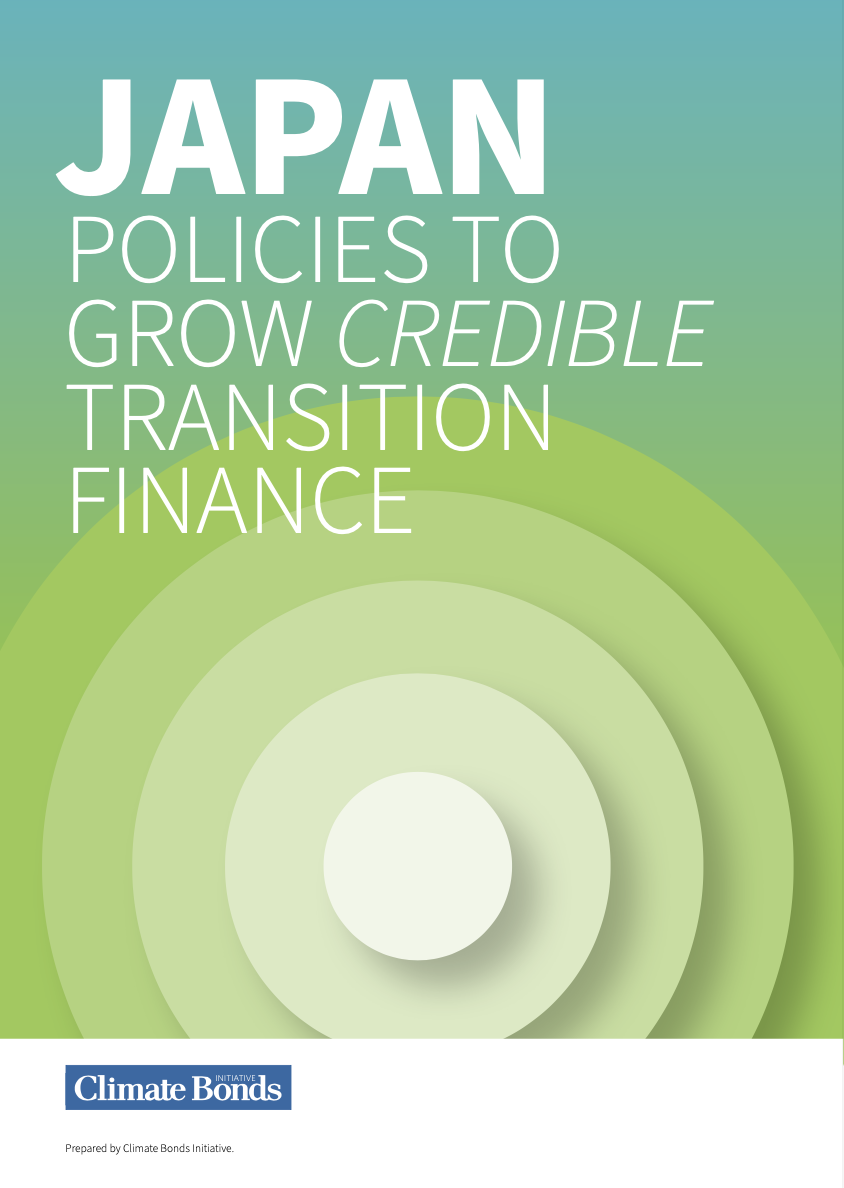Climate Bonds Releases Policy Guidance for Financing Japan’s Transition
“Japan: Policies to Grow Credible Transition Finance” available now
Tokyo/London, 02/10/2023,08:00 JST: The Climate Bonds Initiative announced today the release of the ground-breaking paper, "Japan: Policies to Grow Credible Transition Finance." This report explores Japan's commitment to delivering the goals of the Paris Climate Agreement and provides policy guidance for Japan’s transition to a net zero future.
Sean Kidney, CEO of the Climate Bonds Initiative, commented: "This paper provides valuable insights and recommendations for policymakers in Japan. It underscores the importance of aligning transition efforts with 1.5°C objectives, prioritising mature technologies, and ensuring a strong carbon price.”
“Japan's GX Plan, along with the proposed GX Sovereign Bond, holds the potential to drive economic growth through emissions reduction and set a global example if it maintains strict adherence to net-zero standards, facilitating a shift from fossil fuels to clean energy-driven structures."
Seven recommendations to ensure a 1.5°C-aligned transition:
- Prioritise mature technologies, such as energy efficiency, grid flexibility, and renewable energy;
- Set a phase-out year for unabated coal;
- Put in place clear boundaries for any investment in fossil gas;
- Strengthen requirements for hydrogen and ammonia to ensure they are low carbon;
- Ensure a strong and appropriate carbon price;
- Enhance and expand transition plan requirements for the private sector;
- Build investor confidence with a bold and strictly 1.5°C-aligned sovereign GX bond.
GX: A solid foundation with work to be done
Japan's GX Plan, approved by the Japanese cabinet in February 2023, marks a significant commitment to combatting climate change, outlining a 10-year roadmap for economy-wide emissions reduction.
While it prioritises investment in renewable energy, energy efficiency, and circular economy measures, further refinement is needed to align with 1.5°C objectives. Some aspects of the plan are incongruent with global models for achieving these goals, potentially jeopardising its credibility. This paper offers concrete guidance to Japanese policymakers for refining the GX Plan, avoiding greenwashing, and promoting rapid, credible transition investments.
GX Sovereign Bond: A show of confidence
Japan aims to mobilise JPY150tn (USD1tn) to realize the GX Plan's transition objectives. To attract private capital, Japan plans to issue a pioneering GX Economic Transition Bond (GX Bond) worth JPY20tn (USD144bn).
Expected to be the first sovereign transition bond, it is crucial to establish global investor confidence in its alignment with net-zero goals. If deemed robust and credible, this could set a global example.
Fossil Gas: Urgent Action Required in Japan
In past decades fossil gas was considered a 'transition' fuel due to lower direct emissions, but now there is increasing evidence that methane leakage along the supply chain equates gas power generation emissions to coal.
To maintain transition credibility, any investment in liquefied natural gas (LNG) must be consistent with climate goals and address existing asset emissions. Methane emissions are 70% higher than reported figures, necessitating immediate investment in leak detection, reduction tech, and carbon intensity assessments. While carbon capture may provide short-term relief, long-term sustainability demands the phasing out of gas as an energy source.
Policymakers hold the key to a rapid transition
While transition efforts are underway in Japan and around the world, the rapid and dramatic cuts to emissions necessary to reach 1.5°C goals require strong policy guidance to ensure capital flows to essential projects. This new paper joins Climate Bonds’ 101 Sustainable Finance Policies for 1.5°C in providing policymakers with the tools necessary to facilitate this necessary transition.
ENDS

